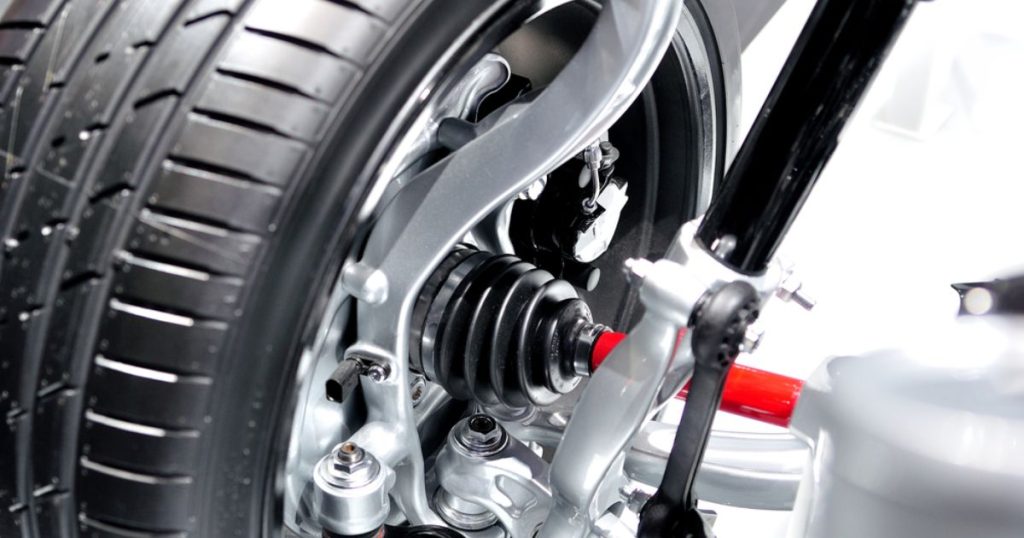When you turn your car, it’s normal to hear a slight noise from the wheels due to the suspension system. If you hear a louder or more unusual noise, it could indicate a problem with your vehicle.
The sound your car makes when turning can vary depending on the issue. Why does my car make a noise? For instance, a squeaking or grinding noise may indicate a problem with the brakes. While a clicking noise could indicate a worn-out CV joint. If you ignore these sounds, you might face more problems later. It can be expensive to fix them.
If your car makes weird noises when turning, you should have a mechanic check it out. They will be able to diagnose the issue and provide the necessary repairs to keep you and your car safe on the road. Please don’t ignore your car’s sounds; they could be warning signs of a more significant problem. This article will explain why your car makes noise when you turn, how to find the issue, and what you can do to fix it.
Possible Causes of Car Noises When Turning
There are several potential reasons why your car makes noises when you turn. Some of the most common causes include:
Worn Out Steering Components
Your car’s steering system comprises various parts that work together to turn your wheels. Over time, these parts can become worn out, causing your car to make noise when turning. This can include worn-out ball joints, tie-rod ends, or steering rack mounts.
Low Power Steering Fluid
Your power steering system relies on fluid to function properly. If the fluid level is low, it can cause your car to make a noise when turning. This can happen if there is a leak in the system or if you last checked the fluid level a while ago.
Damaged Wheel Bearings
The wheel bearings are responsible for allowing your wheels to rotate. If they become damaged or worn out, they can cause your car to make a noise when turning. You may notice a grinding or humming noise coming from your wheels.
Worn Out Tires
Your tires play a critical role in the performance of your car. If they become worn out, they can cause your car to make a noise when turning. This can include a squealing noise coming from the tires.
Loose or Damaged Suspension Components
Your car’s suspension system handles absorbing shocks and vibrations from the road. If there is damage or wear to the suspension components, it can cause your car to make a noise when turning.
How to Diagnose and Fix Car Noises When Turning
Why does my car make a noise? If your car is making noise when turning, diagnosing the problem properly is essential. Here are the steps you can take to diagnose and fix car noises when turning:
Step 1
The first step in diagnosing the problem is determining the type of noise your car makes. Is it a grinding noise, a squealing noise, or a humming noise? Each type of noise can indicate a different problem with your vehicle.
Step 2
If you hear a whining noise when turning, it could indicate your power steering fluid is low. Check the fluid level and top it off if needed. If you notice that the fluid level is low, it’s a sign of a leak in the system that needs to be addressed.
Step 3
If you hear a clunking noise when turning, it could be a sign of damage or wear to your car’s suspension components. Inspect the suspension system for any signs of damage or wear. It includes cracks, breaks, or worn-out parts.
Step 4
Check Wheel Bearings If you hear a humming noise when turning, it could be a sign of damaged wheel bearings. To check for this issue, lift your car off the ground and spin the wheels by hand. If you hear a grinding or humming noise, it’s a sign of damaged wheel bearings that need to be replaced.
Step 5
If you hear a squeaking noise when turning, it could indicate worn-out tires. Inspect your tires for any signs of wear, including bald spots or uneven tread wear. If your tires are worn out, replacing them as soon as possible is important.
Step 6
If you hear a creaking noise when turning, it could be a sign of worn-out steering components. Inspect your car’s steering system, including the ball joints, tie-rod ends, and steering rack mounts. If you notice any signs of wear or damage, it’s important to replace these components as soon as possible.
Step 7
Fix the problem Once you have identified the cause of the noise. It’s important to fix the problem as soon as possible. Depending on the issue, this may involve replacing worn-out parts, topping off fluids, or repairing leaks in the system. It’s important to address the problem to prevent further damage to your vehicle.
Tips for Maintaining Your Car’s Steering System

To prevent car noises when turning, it’s important to maintain your car’s steering system properly. Here are some tips for keeping your car’s steering system in good condition:
Check Power Steering Fluid Regularly
Regularly check your car’s power steering fluid and top it off as needed. This will ensure that your power steering system is functioning properly.
Replace Worn-Out Parts
Replace worn-out parts in your car’s steering system promptly to prevent further damage to your vehicle. This includes ball joints, tie-rod ends, and steering rack mounts.
Rotate Tires Regularly
Rotating your tires regularly can help prevent uneven tread wear and prolong the life of your tires. This can also prevent car noises when turning.
Address Suspension Issues Promptly
If you notice any issues with your car’s suspension system, it’s important to address them promptly. This includes inspecting the system for damage or wear and replacing worn-out parts.
Schedule Regular Maintenance
Scheduling regular maintenance for your car can help prevent car noises when turning. This includes oil changes, tire rotations, and inspections of your car’s steering and suspension systems.
If your car is making noise when turning, diagnosing and fixing the problem is important. Possible causes of car noises when turning include
- worn-out steering components,
- low-power steering fluid,
- damaged wheel bearings,
- worn-out tires,
- loose or damaged suspension components.
Conclusion
Car noises when turning can be a sign of several potential issues with your vehicle. Diagnosing and fixing the problem is essential to prevent further damage to your car. By following the steps we have outlined, you can determine the cause of the noise and take steps to address it.
Why does my car make a noise? Regular maintenance and inspection of your car’s steering system can help prevent car noises. This also applies to the suspension system when turning. Remember to check your car’s power steering fluid and replace any worn-out parts. Rotate your tires and address any suspension issues as soon as possible. By taking these steps, you can ensure that your car stays in good condition and that you stay safe on the road.






